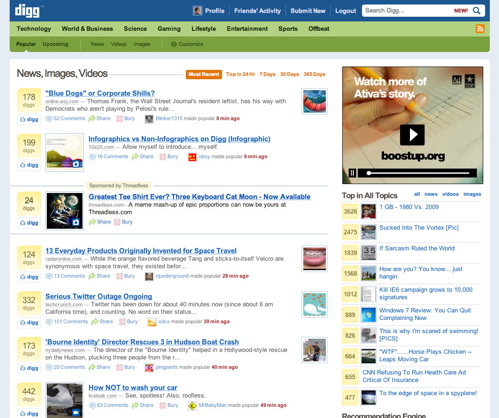
Bing vs. Google rematch: Who's getting better, quicker?
Two months ago, Microsoft unveiled its revamped Bing search service, touting it as a "decision engine." There were some genuine new advantages which we did discover, but not everything appeared ready for Bing's first outing, and we were told to expect improvements to some features "in the coming weeks." Not months, weeks.
So this is August, and (do forgive me) what hath Bing brung? In our June series of Face-offs, the final score was Google (4), Bing (3) -- not necessarily a runaway, but good enough for the champion to not feel immediately threatened. With Google testing improvements to its search engine, we wondered if we'd find any evidence of tweaking on Bing's side as well. We've decided to put both services through the same paces a second time to see which service is the one that's really gunning for a rematch.

Office vs. Web apps: Breaking the 0-0 tie
The story so far: We're in the initial phase of the Microsoft Office 2010 Technical Preview, a period of private and public testing that could last for the better part of a year. So far, the biggest complaint we're seeing emerge is that so little is changing, that it's becoming more difficult for Microsoft to make the value proposition for why businesses and individuals should upgrade from Office 2007 or even 2003. In the absence of viable, existing reasons why the new Office will be better than the old one, a couple of Microsoft employees launched a Web site this week, asking people to come up with their own reasons and vote up each other's best responses.
Right now, the number one suggestion users have for "making Office better" is the restoration of an old feature that existed in Office XP. The #3 suggestion for Word: Give users the option to bring back the Office 2003 menu bar. (You can just hear Carmi Levy cheering that suggestion.) So to recap, from both Microsoft and its users, nothing new yet, but plenty of pleas to bring back old stuff that was just fine.

Qik: Yet another brilliant service crippled on iPhone
Mobile video streaming site Qik, which was introduced last year is leading the charge into the next generation of the Web. Think of it as a real-time YouTube where a user's mobile phone is paired with an online channel that broadcasts live video streamed from his handset camera over 3G. The service's value for citizen journalism is undeniable.
Symbian, Windows Mobile, and Android all have the ability to stream live video to Qik, and the iPhone 3G S just got an app for the service for the first time yesterday.

On second thought, Tr.im stays open
Just shy of two days after announcing it couldn't afford to keep URL shortening site Tr.im open, The Nambu Network says public demand for the site is far too great to simply shut down.
Tr.im will stay alive instead.

Google's next search engine: What's the difference?
Yesterday, without much explanation or instructions, Google opened the floodgates on what it's describing as the next generation of its search engine, most likely to test its efficiency and performance using real-world traffic. Testers are being invited to sample the new engine that Google is calling "Caffeine," although perhaps intentionally, it isn't yet explaining just what the differences are.
In Betanews' initial tests Tuesday morning comparing Caffeine to Google's current stable release, we noticed that for nearly every simple and complex search query we tried, the top three non-paid search results were always the same. But the order of results starting as high as #4, sometimes #6, changed. Usually Caffeine retrieved the same pages as the stable version, but shuffled them in a different order.

Delicious founder: 'Since when is Yahoo cool?'
Joshua Schachter, founder of social bookmarking site Delicious, said in a forum posting yesterday that he regrets selling Delicious to Yahoo.
The discussion centered around Apache Hadoop creator Doug Cutting, who announced this week that he's leaving Yahoo to join Cloudera, an enterprise support service for Hadoop users.

Real-time Web search could be Facebook's future
After Facebook announced that it would be acquiring social sharing service Friendfeed, Facebook engineering manager Akhil Wable announced that Facebook was in the midst of improving its in-site Search features as well.
Users can enter the term they want to find in the search field, then results can be filtered to include posts by friends, fan groups, or pages viewable to all users, as well as events, applications, and the Web as a whole.

Twittered off: Time to grow up
Last week's monumentally scaled denial-of-service attacks -- more recently attributed to a massive attack on a Georgian professor and part of the ongoing dispute between Russia and Georgia -- once again showed just how soft Twitter's soft underbelly is. And for a service used by 44 million people last month, getting hauled to its knees by a bunch of political/cultural enemies intent on opening up a new front in a simmering regional conflict isn't exactly a sign that all's well on the security front.
If Twitter were a bank, the angry mobs would have already descended on Capitol Hill, pitchforks in hand, calling for someone's head. But since Twitter's just an itty-bitty message service, and since it's free, it gets a pass. It shouldn't.

Facebook buys FriendFeed
Popular social networking site Facebook has bought FriendFeed.com, and will be taking its entire staff aboard, the companies announced this afternoon.
"Since I first tried FriendFeed, I've admired their team for creating such a simple and elegant service for people to share information," said Mark Zuckerberg, Facebook founder and CEO.

Tr.im: You can't make money shortening URLs
There's an old business saying: If you want to make money in a gold rush, don't prospect, sell shovels. This is the same sort of idea that happened with Twitter and URL shorteners.
URL shortening services are the shovels of the Twitter gold rush, except nobody's making any money selling them.

First betas of Digg-able advertising
Earlier this summer, Digg's Chief Revenue and Strategy officer Mike Maser announced the beta of Digg Ads, a novel advertising platform where readers rate ads and determine how much the advertisers has to pay. For example, an ad which has lots of Diggs will cost an advertiser much less than if an add is buried. Ads can be buried so much that they are priced out of the system.
This week, the site has begun the rollout of an early beta version of Digg Ads. For a select group of users, paid entries will begin to appear on the site. The only difference between these advertisements and traditional Digg entries is that the advertisements are marked as "sponsored", similar to sponsored results on search sites.

Owner of Office.com trades its URL to Microsoft, perhaps for Outlook features
Since at least 1999, the lucrative Web URL Office.com has been registered to someone other than Microsoft, the company most closely associated with that term with regards to software. Most recently, Office.com wasn't owned by any cybersquatter, but by ContactOffice Group -- a very legitimate Belgian company which used the URL to establish a virtual e-mail client accessible through desktop and mobile Web browsers.
Late last June, Office.com's clients received e-mails from ContactOffice notifying them that their accounts will be moved to the contactoffice.com domain at the end of July. There's only one really good reason why a company would move from a ubiquitous trademark to an arguably more obscure one; and today, the logic behind that reason was confirmed by the Internet's string of WHOIS databases: Microsoft is now the official owner of the Office.com domain.

Nielsen: Kids really don't use Twitter
This afternoon, Nielsen researchers David Martin and Sue MacDonald posted the Nielsen NetView Audience metric for Twitter in 2009, which shows that the majority of Twitter users are in the 25-54 age group.
The graph would otherwise be uninteresting were it not for the fact that 15-year old Morgan Stanley intern Matthew Robson declared that teenagers do not use Twitter, in a non-statistical representation of Teenager media consumption released last month.

Future of open Web video may change with Google acquisition of On2
Google announced today that it will be acquiring video compression company On2 Technologies for an estimated $106.5 million, pending stockholder approval and regulatory consent.
"Today video is an essential part of the Web experience, and we believe high-quality video compression technology should be a part of the Web platform," Sundar Pichai, Google's vice president for product management, said this morning. "We are committed to innovation in video quality on the Web, and we believe that On2's team and technology will help us further that goal."

GPU-enriched 3D for Web browsers targeted for H1 2010
A coalition that includes three of the four leading alternative Web browser manufacturers -- Mozilla, Google, and Opera Software -- along with graphics processor leaders AMD (ATI) and Nvidia, announced this morning their intention to produce a royalty-free mechanism for producing hardware-assisted 3D graphics using JavaScript-enabled Web pages, for initial distribution during the first half of next year.
Based on OpenGL ES, the WebGL language could conceivably open up the field of Web applications to classes of software traditionally reserved for local, on-system installation, including computer-aided design and engineering, rich visualization, and of course, gaming. While the <CANVAS> element in HTML 5 is already geared for 3D geometry, what WebGL would enable is the ability for JavaScript developers to utilize the GPU to produce fast, fluid, rendered scenes, effectively extending the already proven OpenGL ES system used by Sony's PlayStation 3, to the realm of Web apps.
